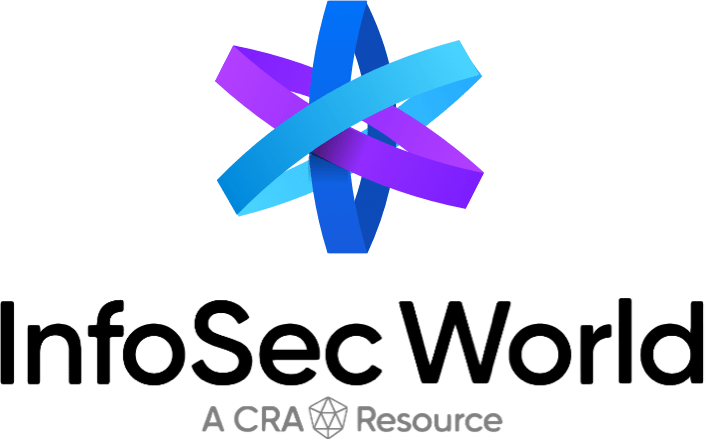
9 am - 3 pm, Thursday, September 28
This one-day summit, taught by Department of Homeland Security (DHS), Federal Bureau of Investigation (FBI); and InfraGard Member Alliance executives will provide attendees with the knowledge, skills and practical guidance in the following areas: what critical infrastructure protection is; the nature of the physical, cyber, and human (insider) threats; primary stakeholders and their roles and responsibilities; and the tools and resources available to help them better protect U.S. critical infrastructure. Specific topics to be addressed include:
1. What is Critical infrastructure?
2. What are the threats to critical infrastructure? (physical, cyber, human)
3. How did Homeland Security come about and what is Critical Infrastructure Protection?
4. Who is involved in critical infrastructure protection?
5. Who should I have partnerships with to protect the infrastructure(s) I am responsible for?
6. What tools and resources are available to me to help me better protect the infrastructures I am responsible for?
Agenda
9:00am – 9:10am - Introduction, overview and Administrivia
Speakers - Chuck Georgo, INMA Director, Education and Training; Andrew Von Ramin Mapp, President Orlando InfraGard Chapter
9:10am – 9:30am - Opening Keynote - Why is it Important for CISOs and Other Cybersecurity Professionals to Understand the Broader Fundamentals of Critical Infrastructure Protection?
Our Nation's critical infrastructure provides the essential services that underpin American society. Food and agriculture, water, transportation, and the defense industrial base are just a few of the critical infrastructures that are so vital to our Nation that their incapacity or destruction would have a debilitating impact on our physical or economic security or public health or safety.
This keynote will present the business need for all CISOs and cybersecurity professionals to take a broader view of their roles and responsibilities, to understand why “critical infrastructure protection” is more than the bits and bytes we manage every day.
To truly contribute to effective “critical infrastructure protection”, we must understand and factor in the physical and human threats and how they enable and/or contribute to disruptions or destruction of the information technology systems that underpin all sixteen critical infrastructures.
Speakers - Jason Ruehle, Supervisory Special Agent (SSA), Federal Bureau of Investigation (FBI), Tampa Division; Justin Crenshaw, Special Agent (SA), Federal Bureau of Investigation (FBI), Tampa Division
9:30am – 10:30am - What is Critical infrastructure and What Threats Does it Face?
This session will teach you about what is considered critical infrastructure, will introduce you to the 16 DHS specified critical infrastructure sectors, and the nature (with examples) of the three kinds of threats to critical infrastructure, as categorized by the NIPP - physical, cyber and human.
It will also teach you about the types of threat actors - state sponsored, hacktivist, activist, , lone actors, etc., and their motivations - financial, ideological, political, religious, etc., for wanting to cause harm to you, your staff, and our infrastructures; you will also learn about a few examples of attacks to our National critical infrastructure and their consequences, across a few different sectors.
Finally, you will be offered some suggestions to help mitigate infrastructure threats, to include:
• The need to have a good risk management process in-place in your organization;
• The need to have good partnerships with public and private sector organizations with responsibilities for critical infrastructure protection; and
• The need to know what resources are available to your organization from the FBI, DHS, CISA, State, etc.
Speaker - Keith Givens, Public Sector Coordinator, Federal Bureau of Investigation (FBI)
10:30am – 11:00am - How did Homeland Security and Critical Infrastructure Protection Come About?
• U.S. Code Title 18, Chapters 113B and 2339B, defines terrorism and material support to terrorists
• Presidential Decision Directive (PDD), PDD-63 and infrastructure protection pre-Department of Homeland Security (DHS) – establishment of the FBI National Infrastructure Protection Center (NIPC) (May 1998)
• 9/11 Attacks and Establishment of the Department of Homeland Security (Nov 2002)
• Homeland Security Presidential Directive 7 (HSPD-7), Under George W. Bush, the directive establishes a national policy for Federal departments and agencies to identify and prioritize United States critical infrastructure and key resources. (December 2003)
• Presidential Policy Directive (PPD-21) (February 2013), revokes HSPD-7
• DHS National Infrastructure Protection Plan, https://www.cisa.gov/national-infrastructure-protection-plan
• Guide to Critical Infrastructure Security and Resilience, November 2019
Speaker - Billy Sasser, DHS Supervisory Protective Security Advisor (SPSA)
Break - 11:00am - 11:15am
11:15am – 12:15pm - Attendee Activity: Critical Infrastructure Protection Self-Assessment
Complete a self-assessment worksheet to assess the completeness of the student’s current infrastructure protection program
Speaker - Vikas Bhatia, Chair, InfraGard National Members Alliance CISO Cross Sector Council); Chuck Georgo, INMA Director, Education and Training
12:15pm - 1:15pm - Lunch
1:15pm – 1:45pm - Who is Involved in Critical Infrastructure Protectio and Who Should I Have Partnerships with to Protect the Infrastructure(s) I am Responsible for?
• Agencies involved and their roles - Federal Government, State Government, Municipal Government, and Tribal
• What partnerships should you develop? (FBI, DHS, CISA, ISAC, ISAO, other)
• What kind of information should be shared with these partners (two-way)?
Speaker - Billy Sasser, DHS Supervisory Protective Security Advisor (SPSA)
1:45pm – 2:30pm - What Tools and Resources are Available to Help Better Protect the Infrastructures I am Responsible For?
• FBI resources
• DHS resources (PSAs, CSAs, CISA, other)
• InfraGard as a core resource
- Become a member
- Interact with local InfraGard chapter – meetings, training, networking, information sharing
- National education offerings – NISRU webinars, workshops, eLearning
Speaker: Jason Burt, Cybersecurity Advisor, Region IV
2:30pm – 3:00pm – Closing Remarks and Q&A
Speakers – Michael Ritchie, President, Infragard North Florida (Tallahassee); Chuck Georgo, INMA Director, Education and Training
* Please note: This is not included in the Main Conference registration and requires a separate registration.





